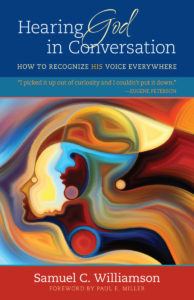My best friend in the world, from ages eight to eighteen (except for three long months), was Mark Maxam. Inseparable companions, we walked to school together, slept over on weekends, jumped off church roofs together, and shared every conceivable secret.

We also wrestled. One day, when I was ten, Mark put me in a scissor-lock that I couldn’t break. So, I bit him. He released me with the roar, “You bit me!” The blood-blush of mortification set my cheeks on fire as I bellowed back, “No I didn’t.”
The thing is: he knew I was lying, and I knew that he knew I was lying, and he knew that I knew that he knew that I was lying. The shame of my scarcely-veiled deceit (not to mention my little nibble) sent me on an emotional, self-protective tail-spin.
I left his house in a huff. I neither called him back nor visited.
Three months later, Mark stopped by my house and silently resumed our friendship. After a few days, I hesitantly asked why he never mentioned my biting. He answered,
“I realized friendship is more important than being right.”
Religion or Relationship?
Last week I read an article by a well-known author who claims that the “religion vs. relationship” tension creates a false choice. He emphasized, “And just for the record, the word ‘relationship’ nowhere appears in Scripture—at all.”
But “relationship” appears on every page of Scripture. When God describes his association with humanity, every single metaphor is relational:
- He is a shepherd and we are his sheep;
- He is a vine and we are his branches;
- He is our father, brother, friend, and bridegroom.
The pages of Scripture overflow with the images of a relational God, not mechanical religion. God even redefines “sin” when he declares it “adultery;” that sin is not breaking his rules nearly as much as it is breaking his heart.
Conversation
In one bizarre passage (if I can say that about God’s Word), Jesus vilifies relation-less Bible study. Addressing the Pharisees, Jesus says, “You search the Scriptures carefully because you suppose that in them you have eternal life. Yet they are about me. But you are not willing to come to me to have life” (John 5:39-40).
We can’t read Scripture without seeing a God who longs for relationship.
Every human heart longs for an intimate communication with God. We say there is a God-shaped vacuum in our being; but even after conversion, most believers still experience a vacuum of silence.
The lives of Christians ooze lifelessness to the world because we have adopted the world’s false solutions of busyness over relationship, mission over connection, activity over conversation. With God.
He hears us, yes, but he also wants us to hear him! He made us for a divine dialogue.
Two weeks ago, my friend Mark’s wife of thirty years died of bone cancer. When I asked him what he will miss most about Michelle, he said,
“I’m just going to miss talking with her.”
Sam
P. S. I recently wrote a book all about developing a conversational relationship with God. If you want to nurture that  divine dialogue with God, may I suggest you buy Hearing God in Conversation.
divine dialogue with God, may I suggest you buy Hearing God in Conversation.
Eugene Peterson said, “I picked it up out of curiosity, and I couldn’t put it down.”
Gary Wilkerson wrote, “This is a remarkable book that teaches both how to hear God’s voice in Scripture, and then to hear his voice in every avenue of life. It’s filled with humor, insight, practical tips, and sound theology. I can’t recommend a better guide than Hearing God in Conversation.




Leave a Reply